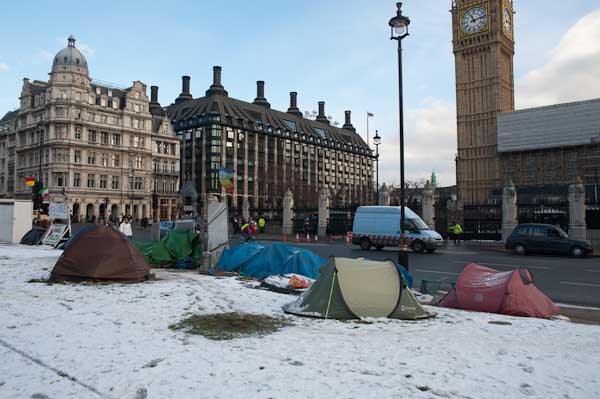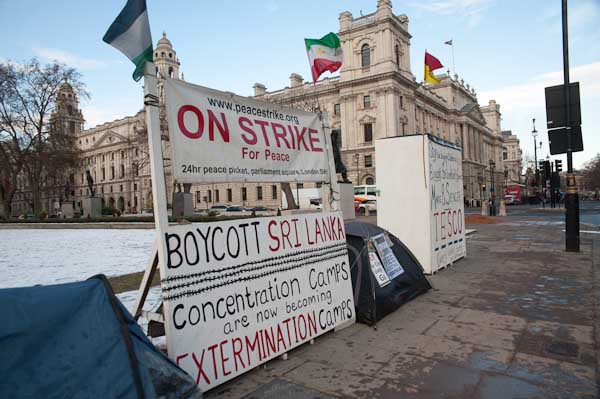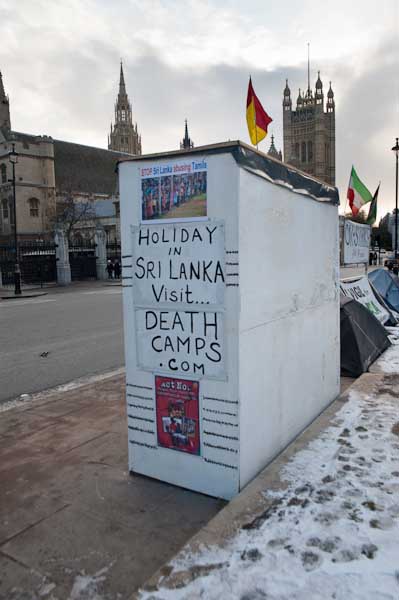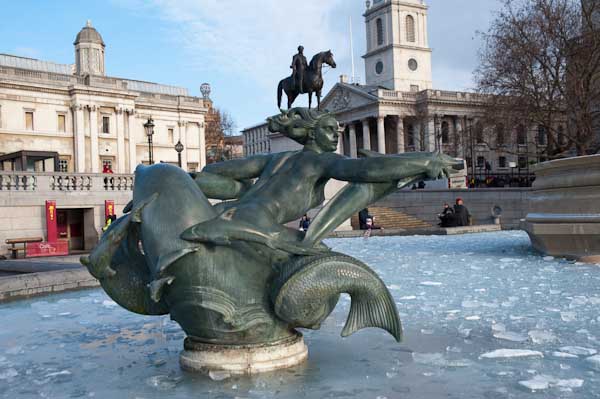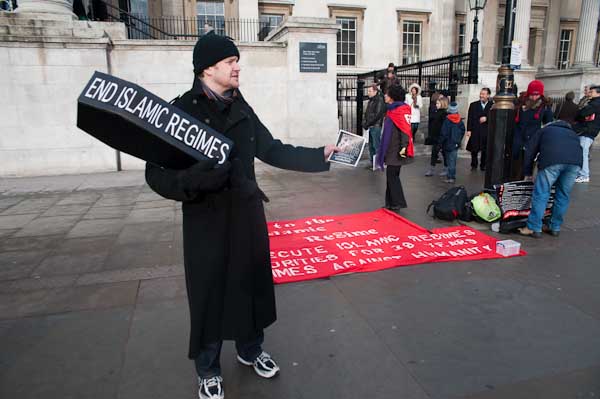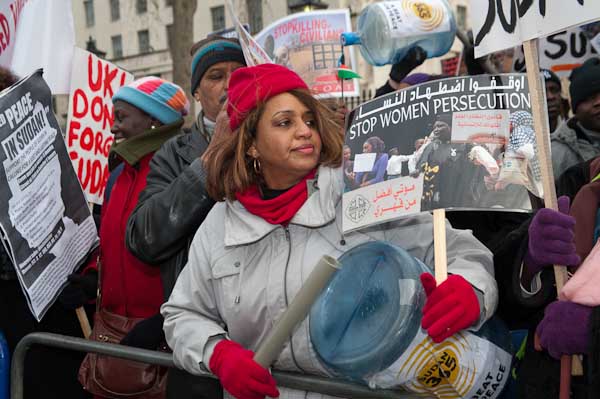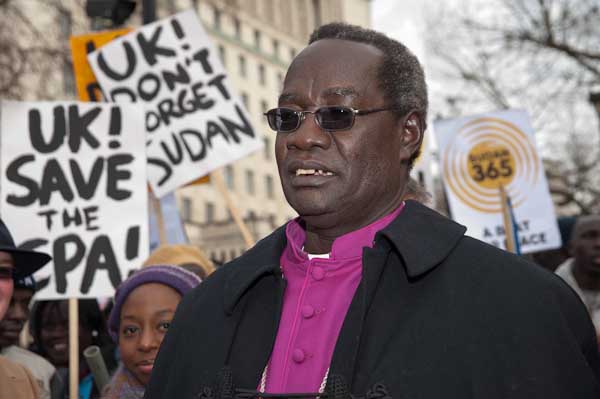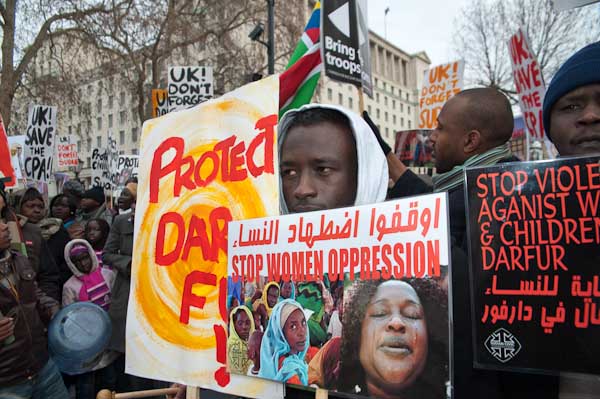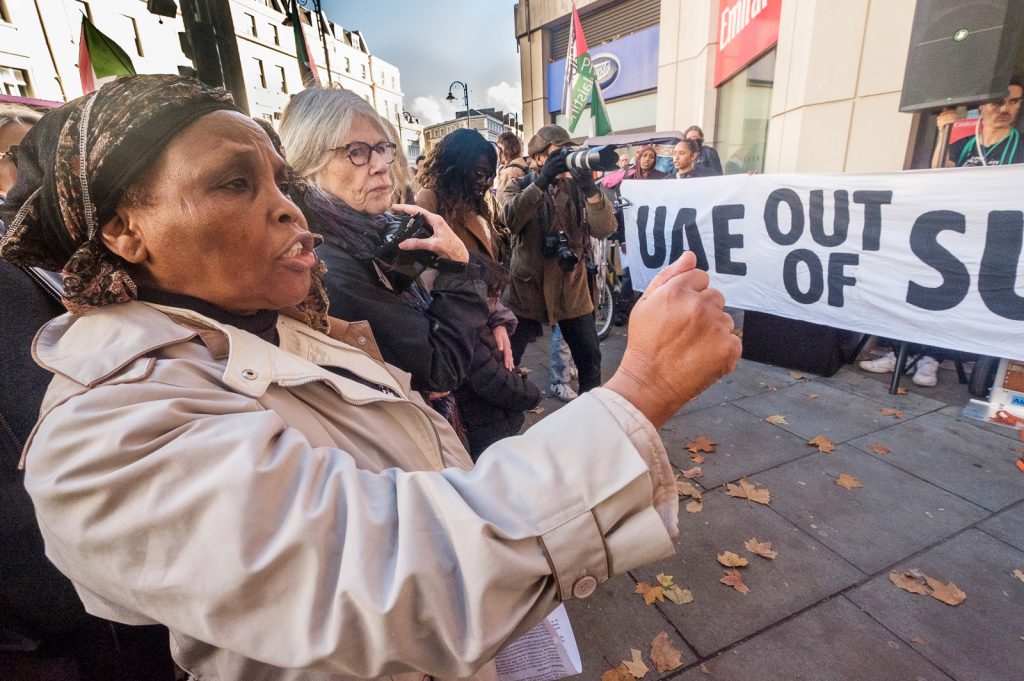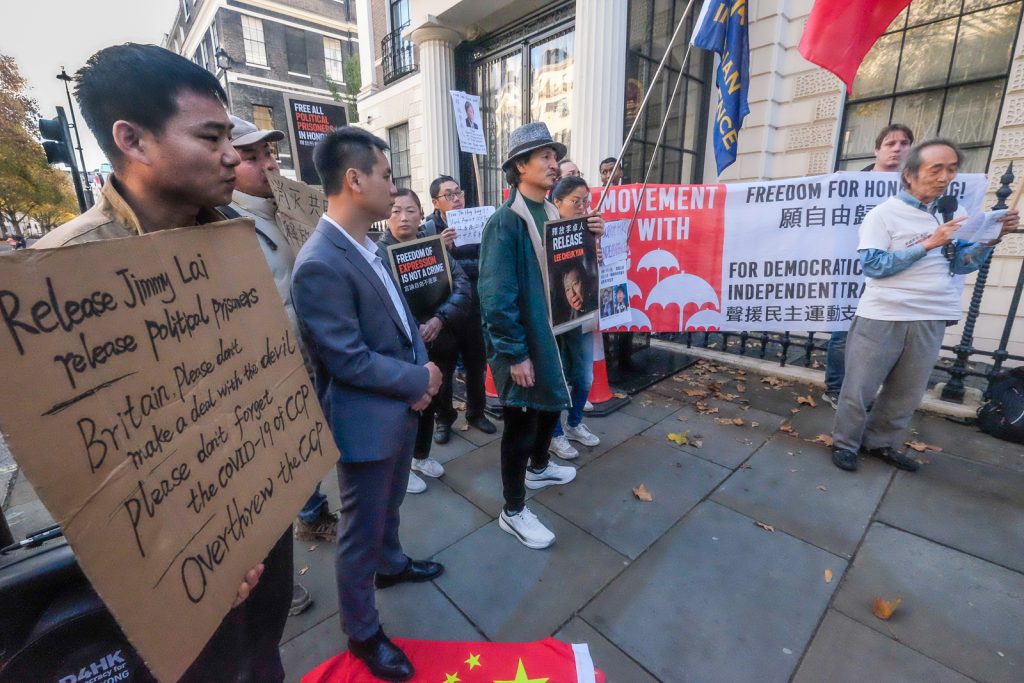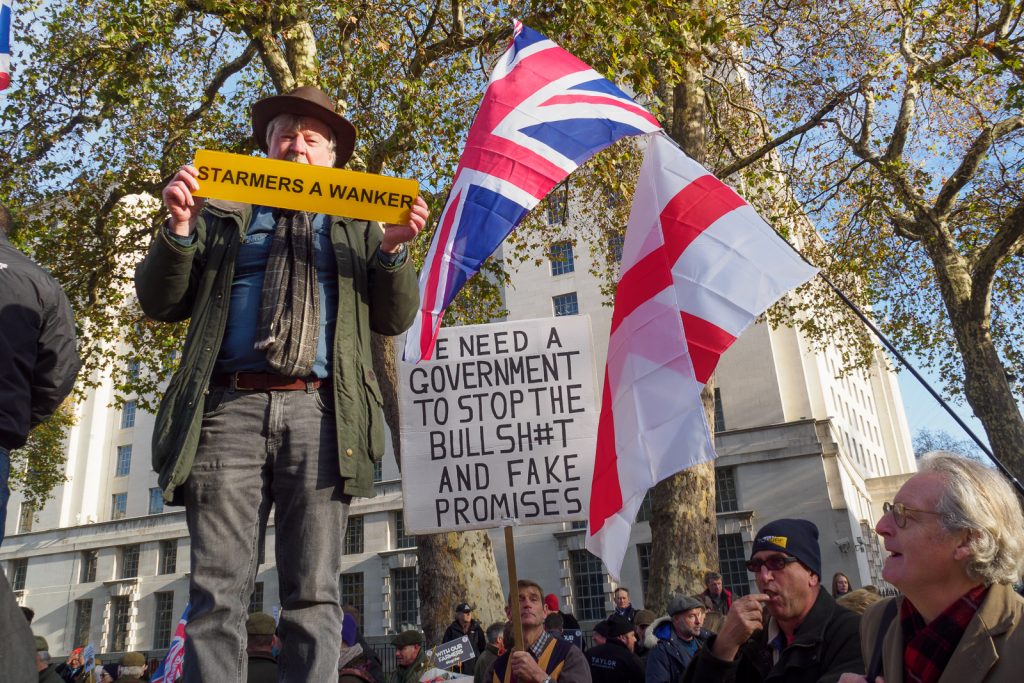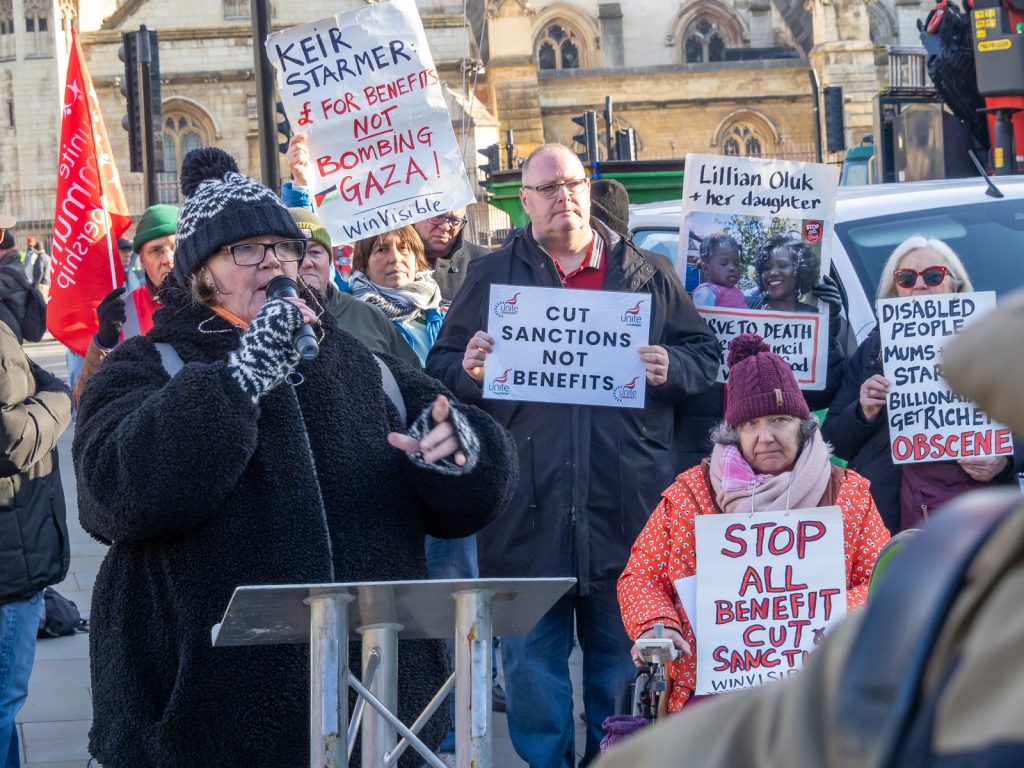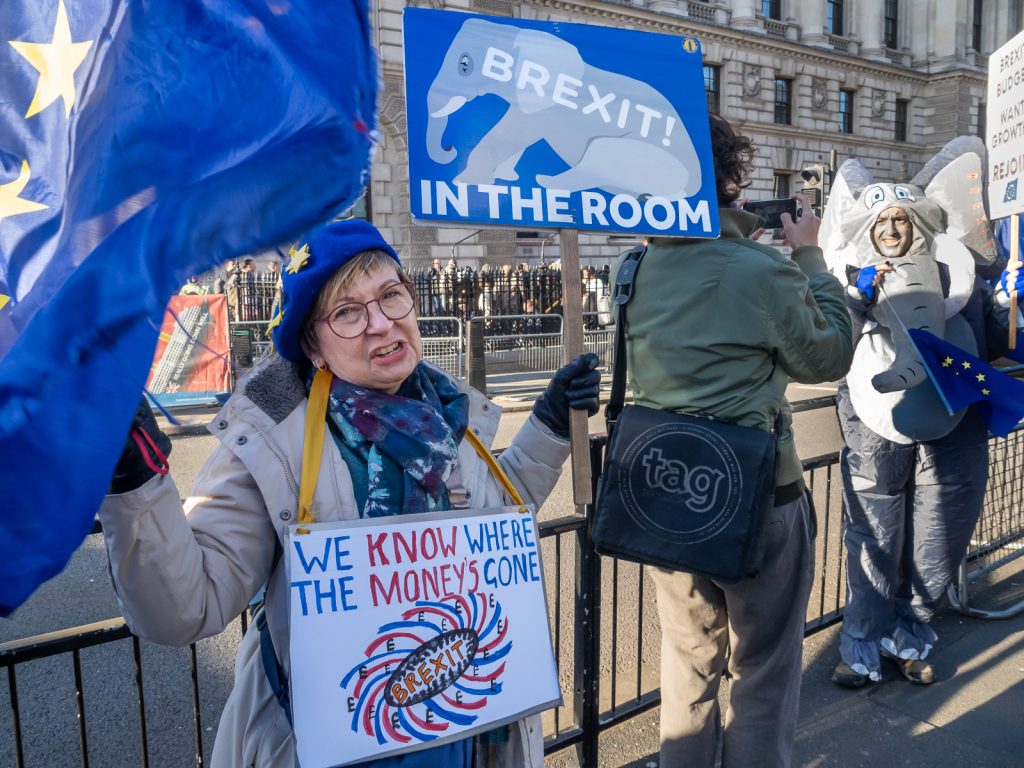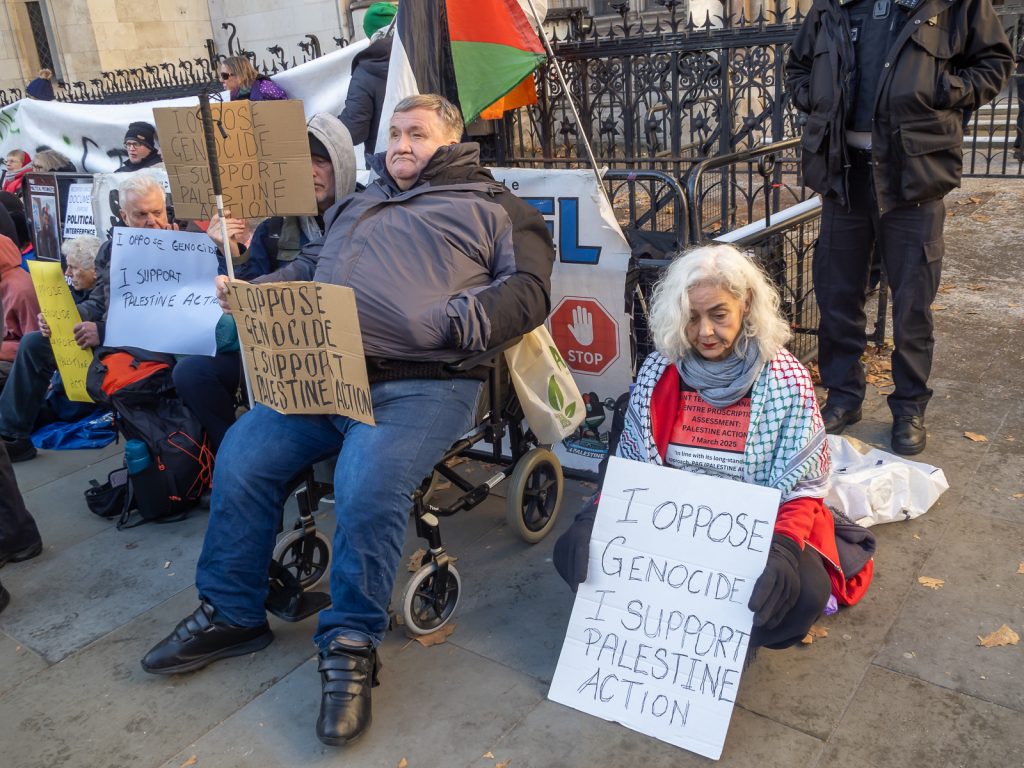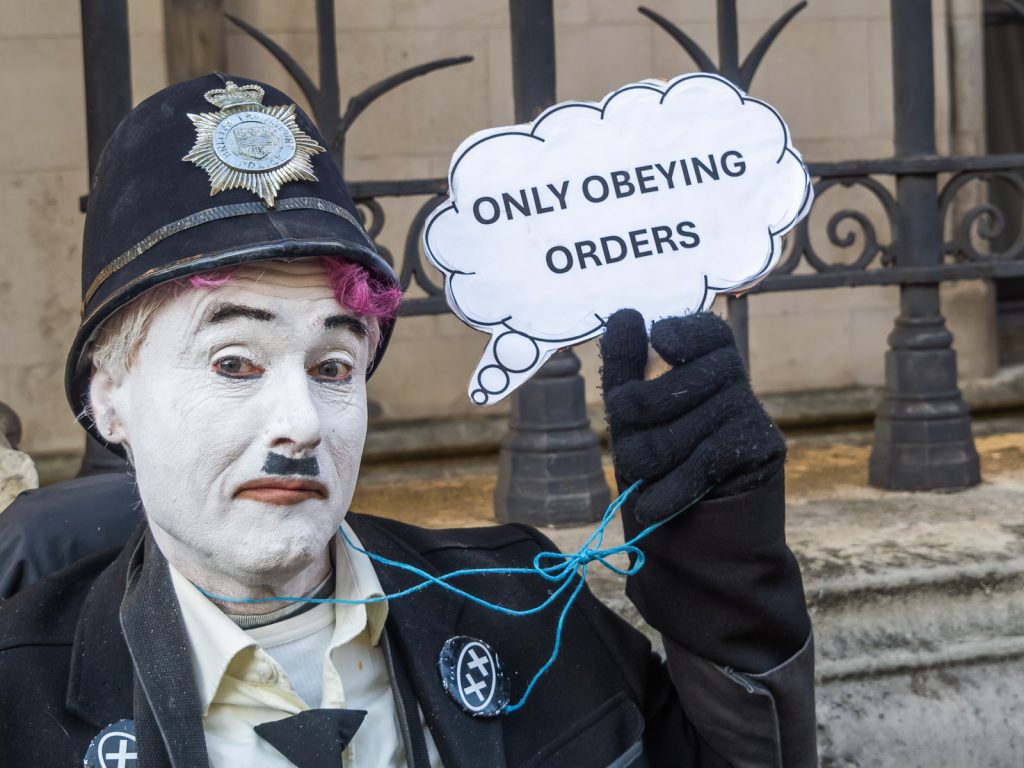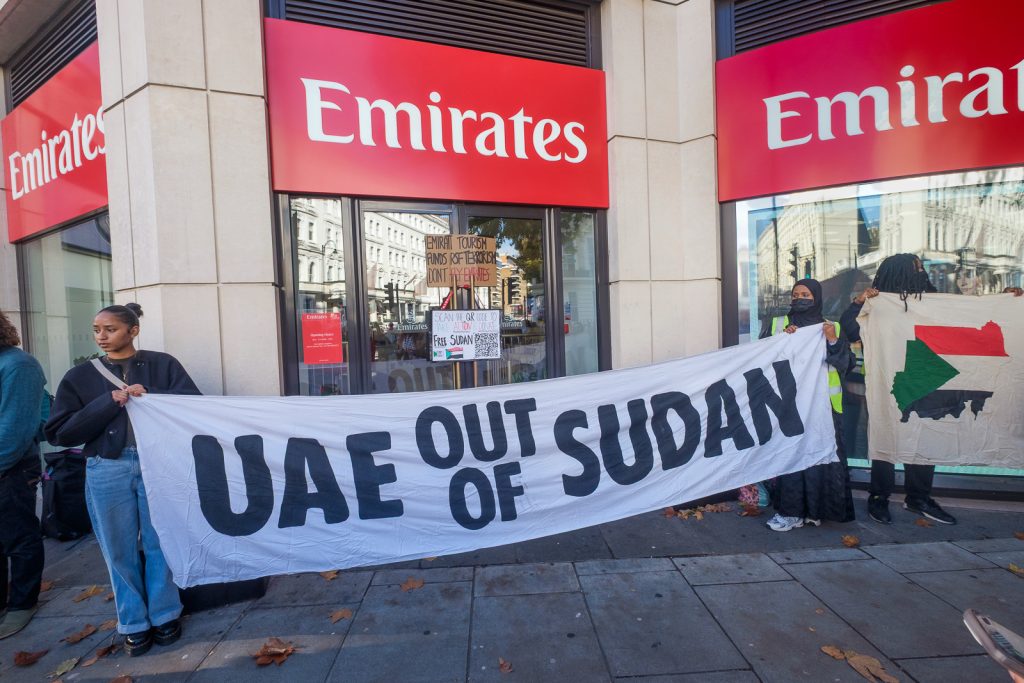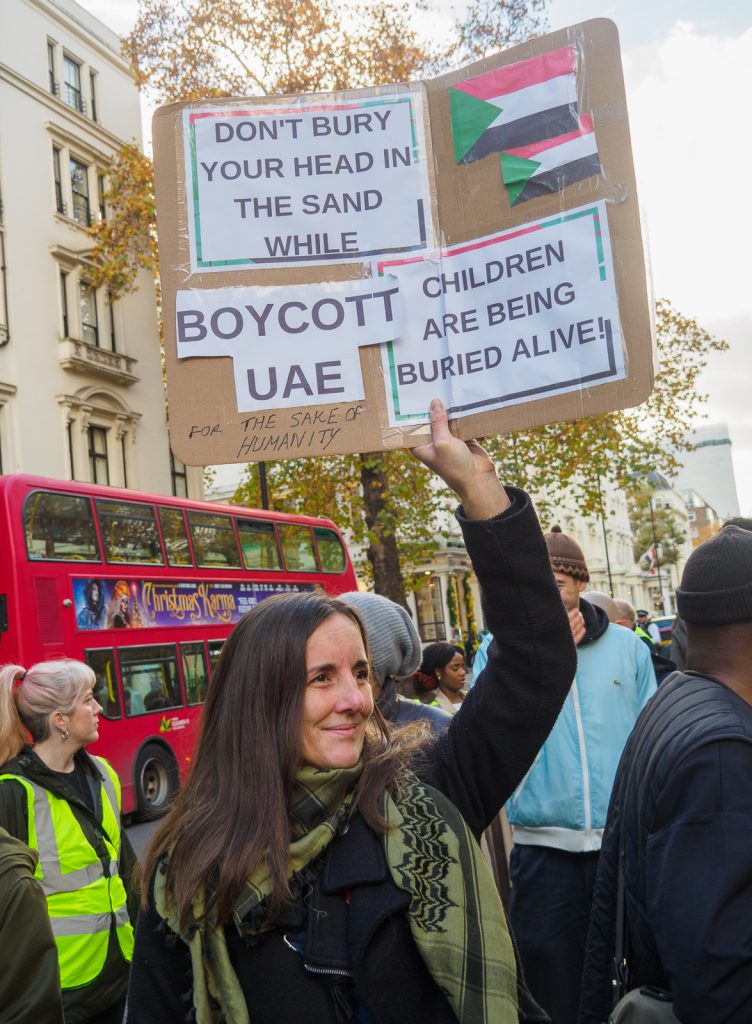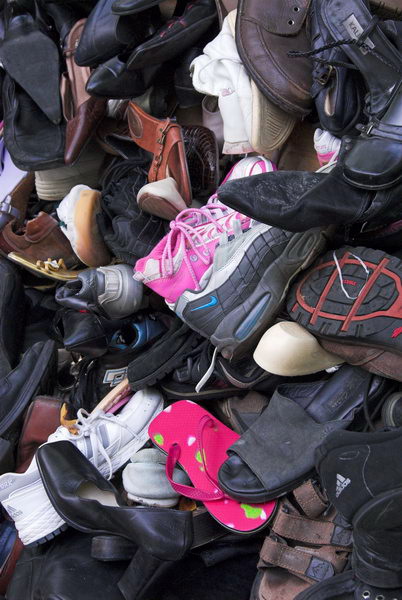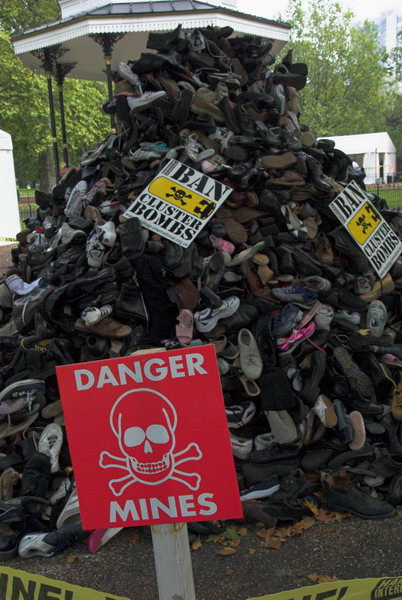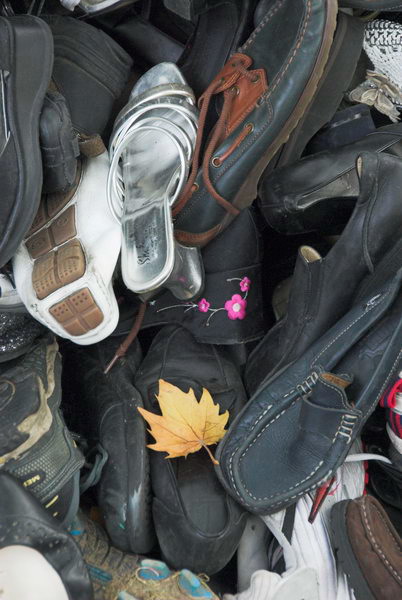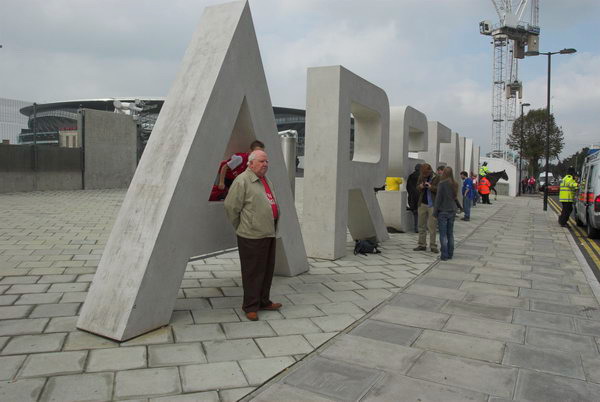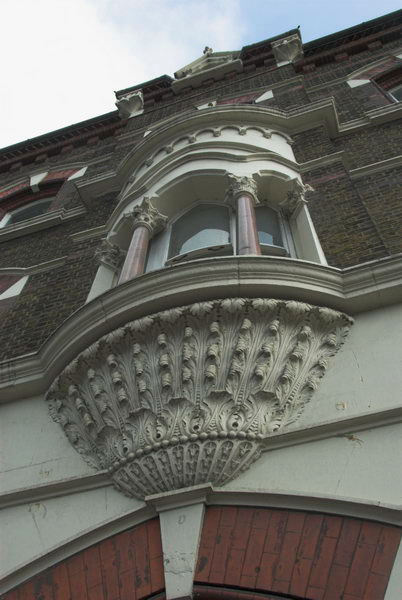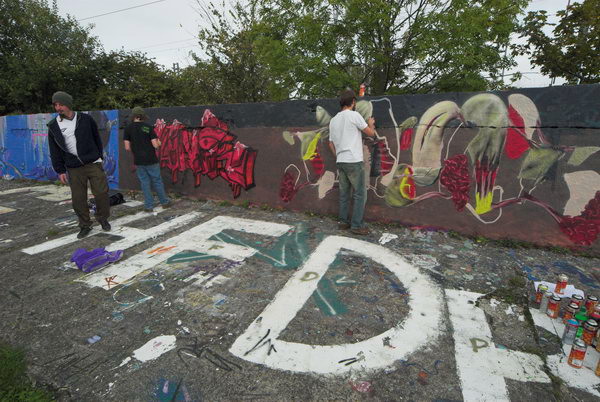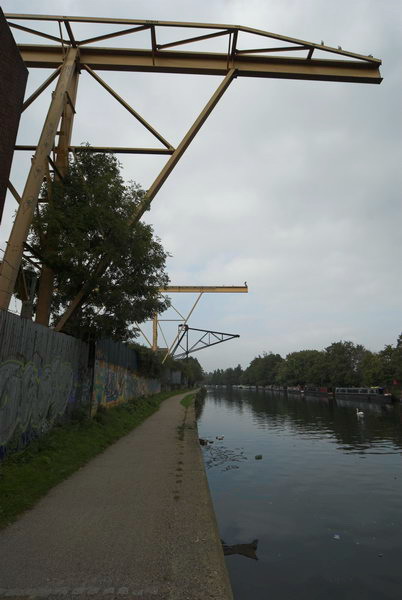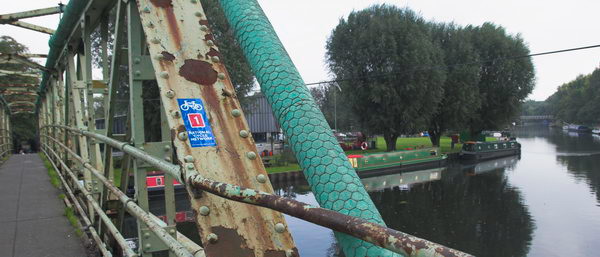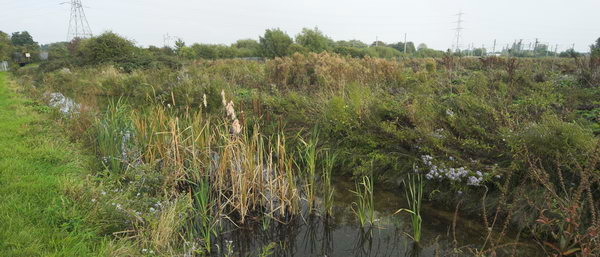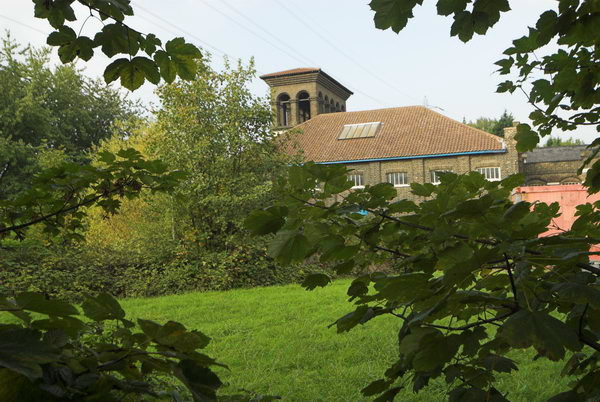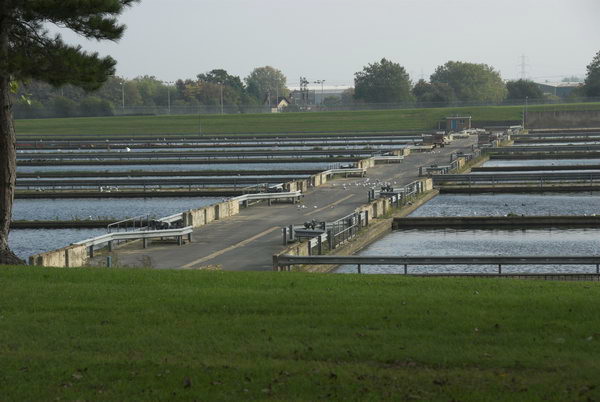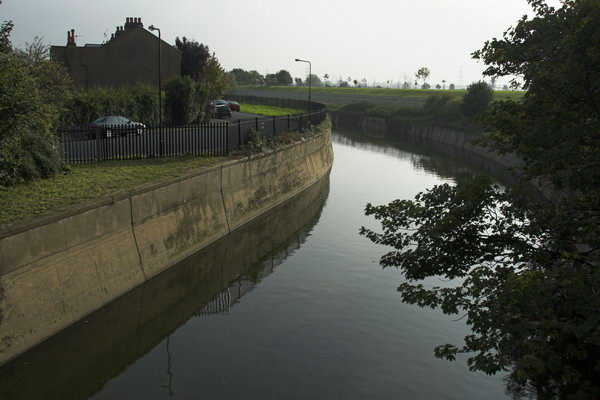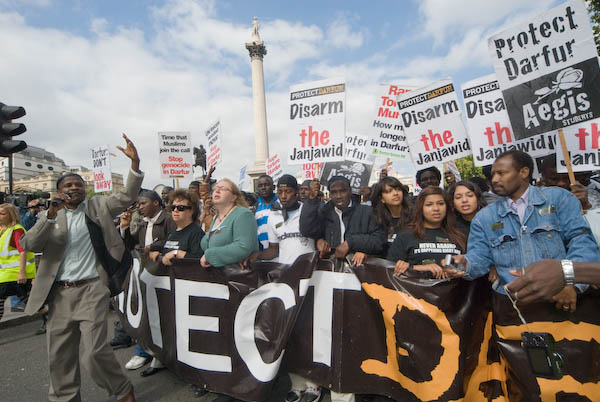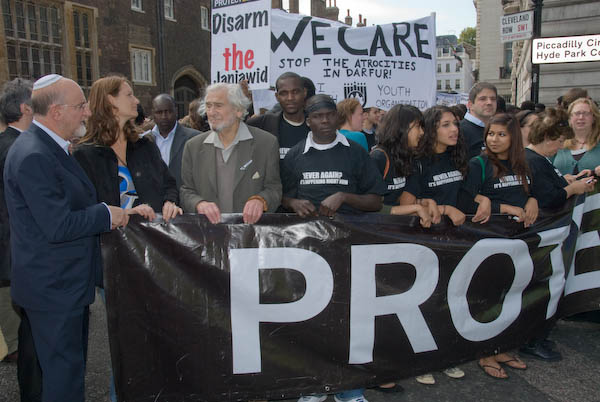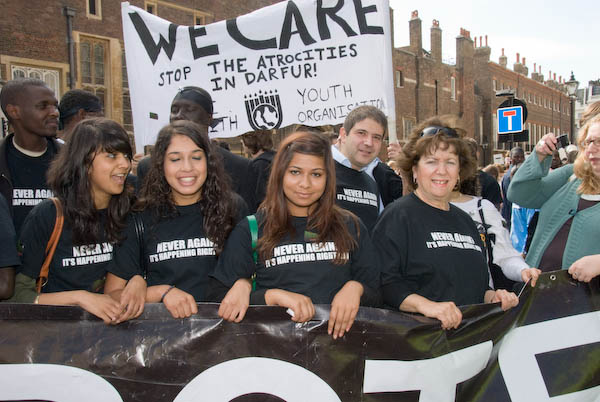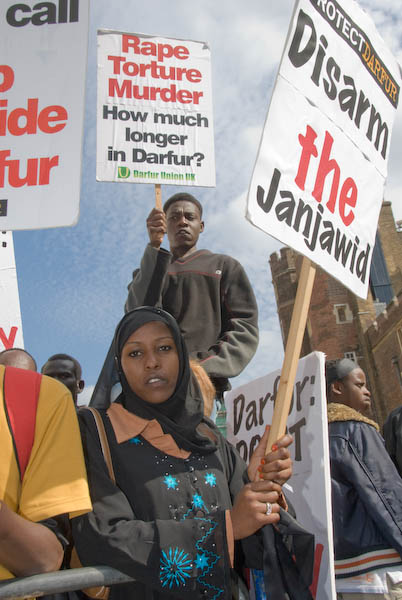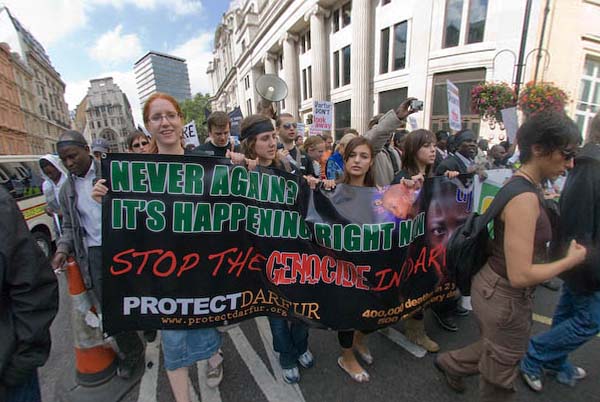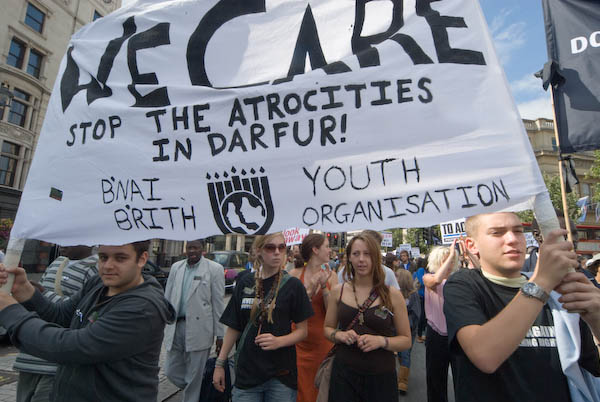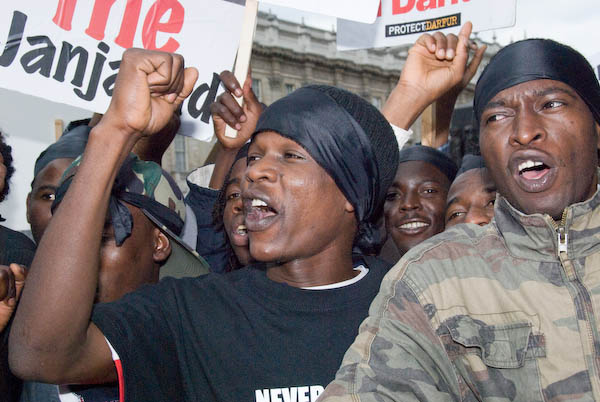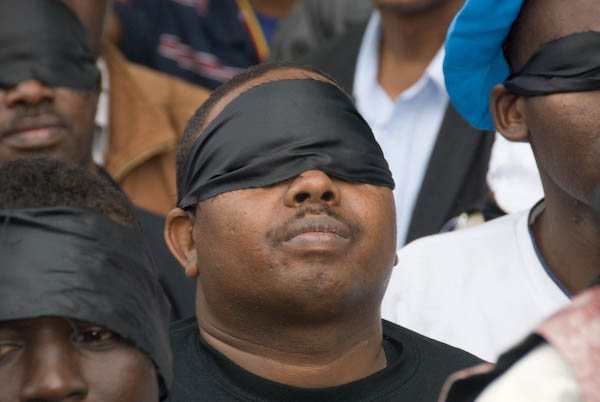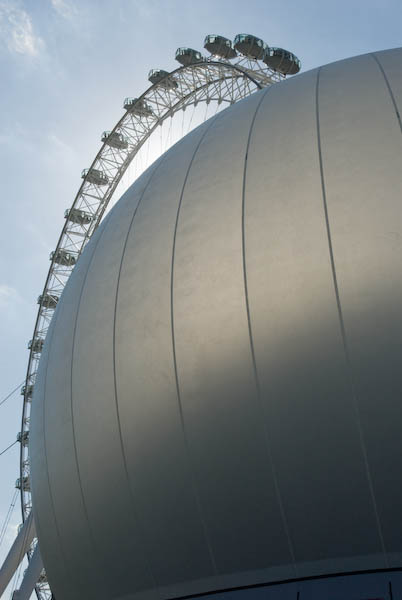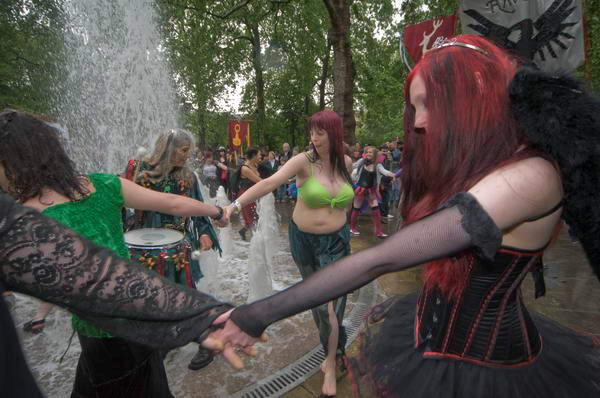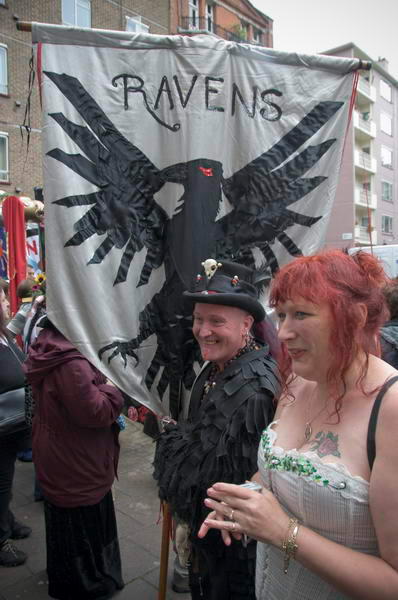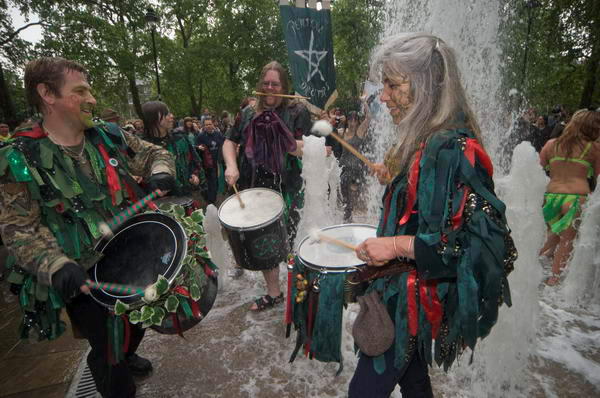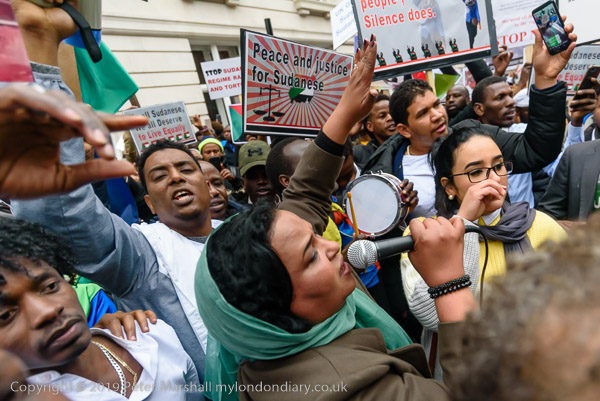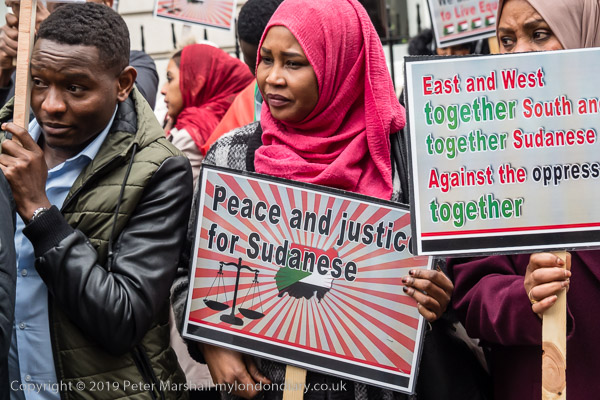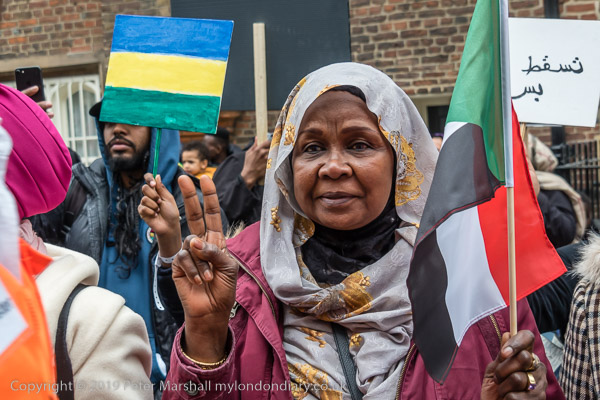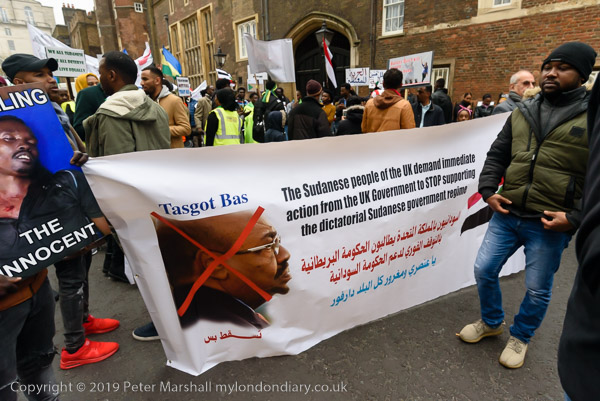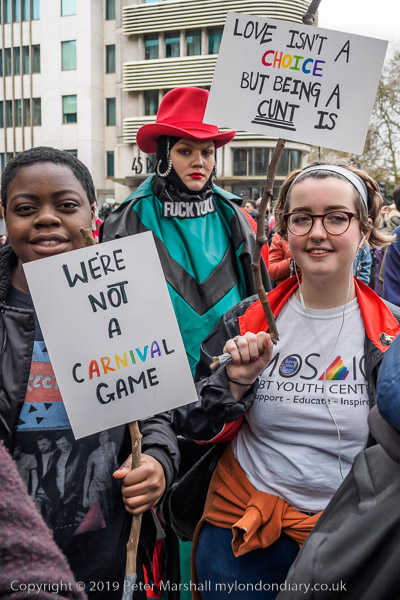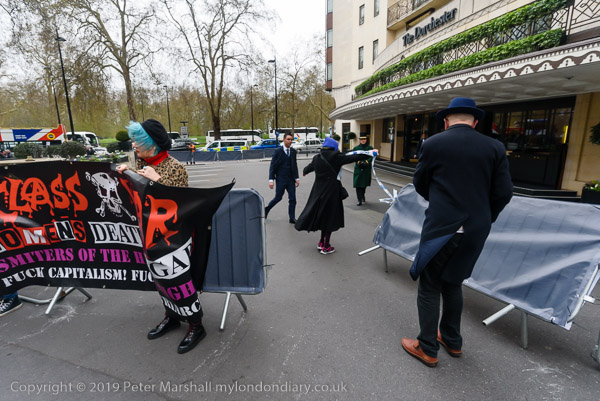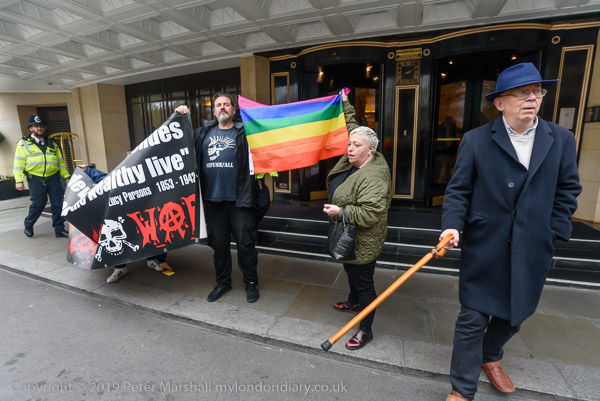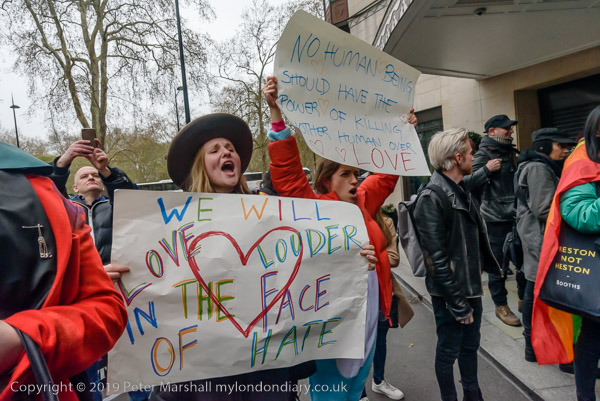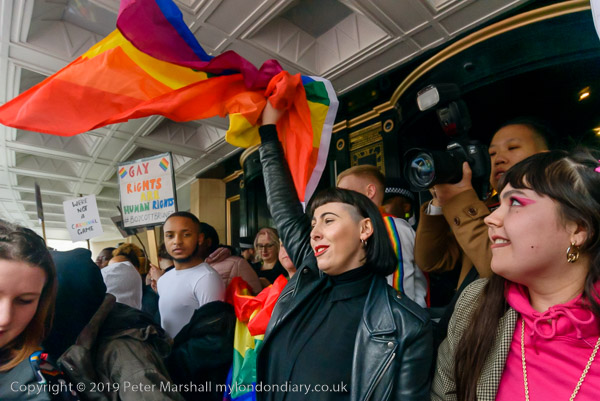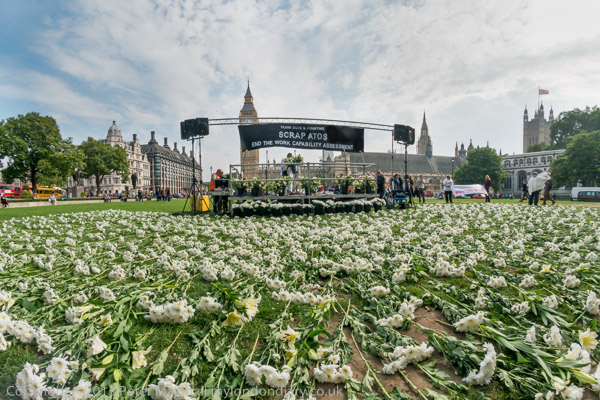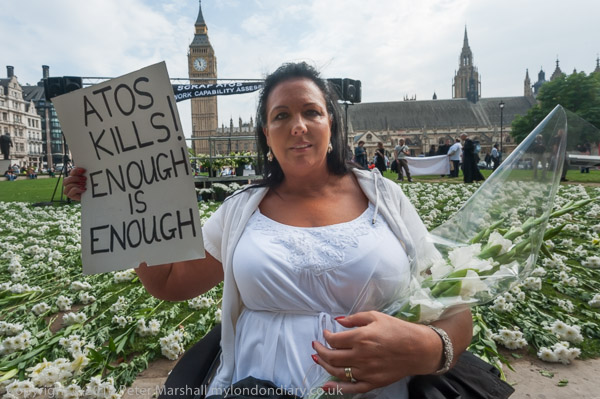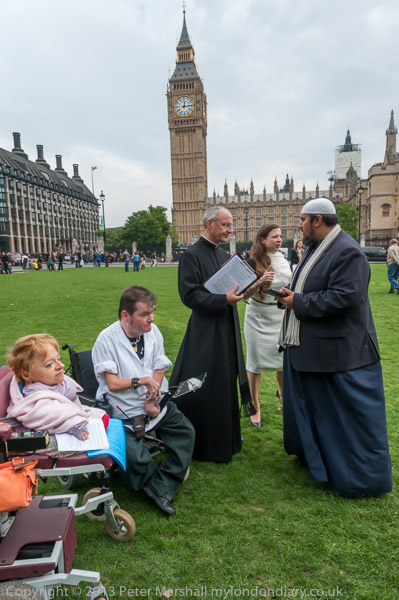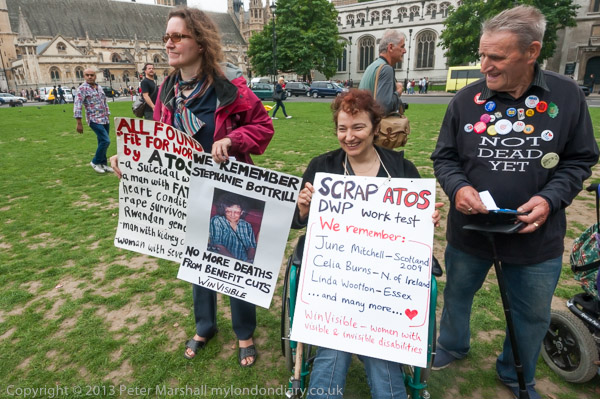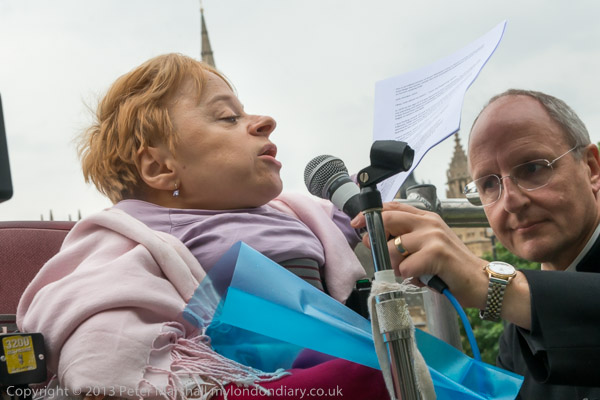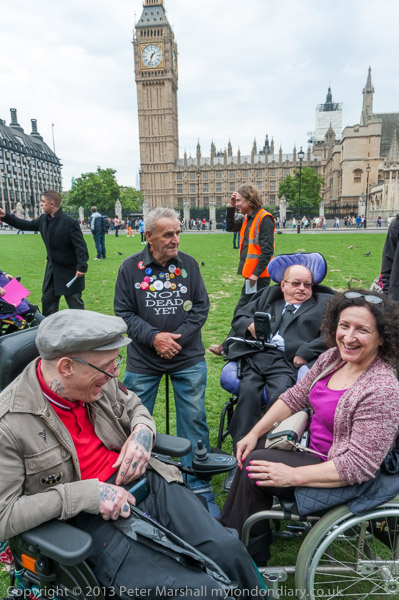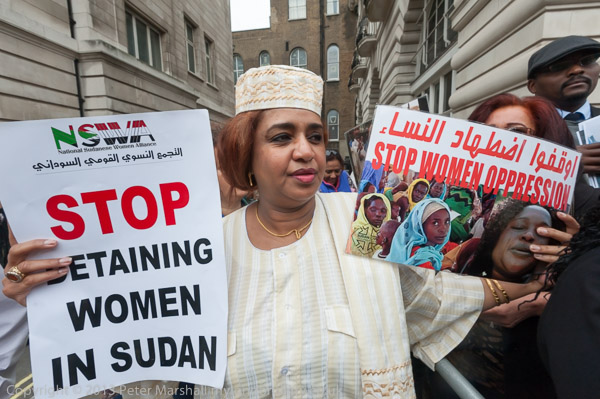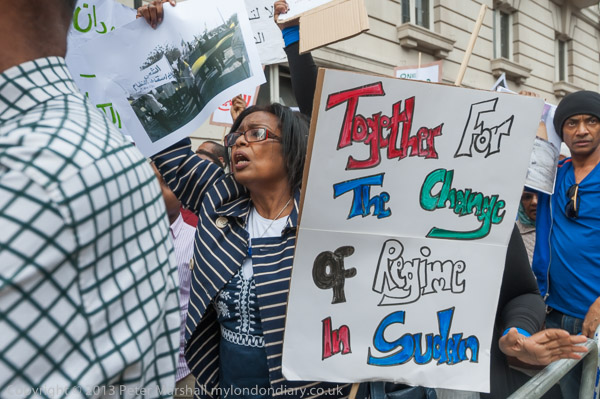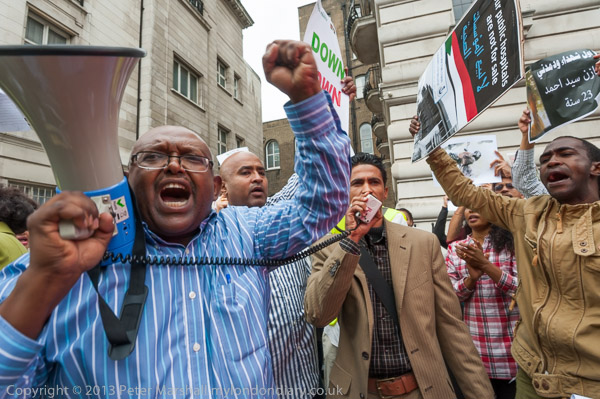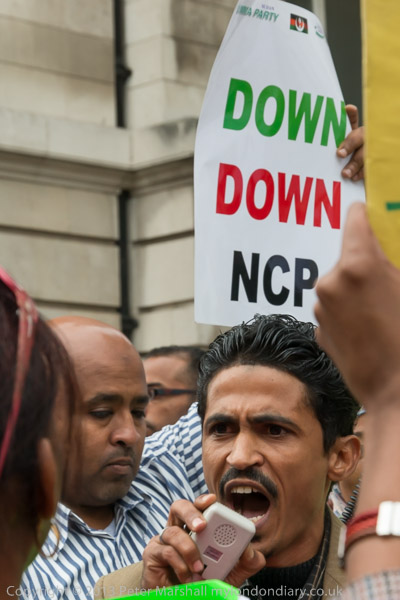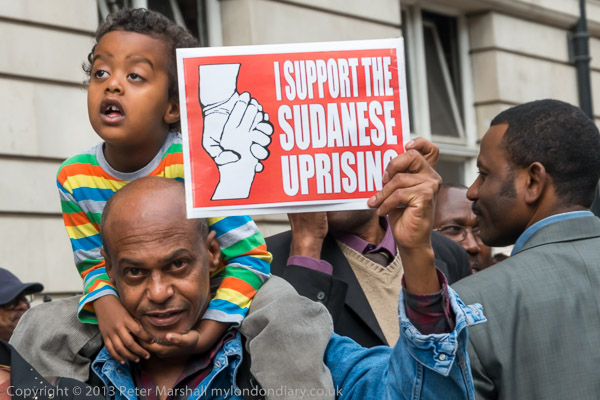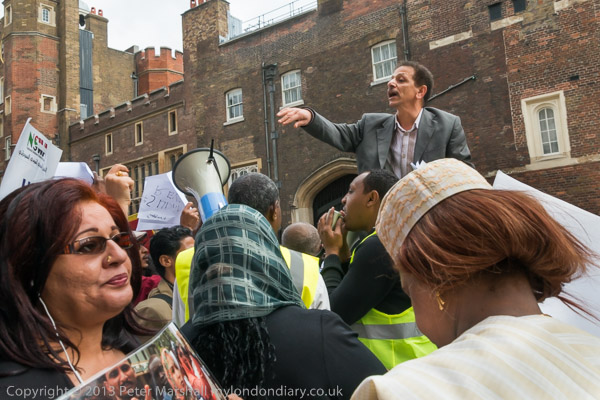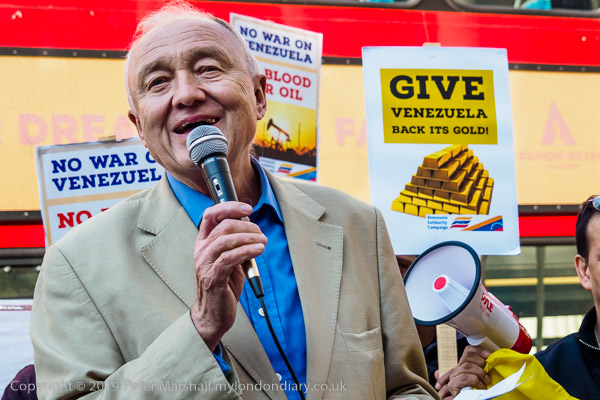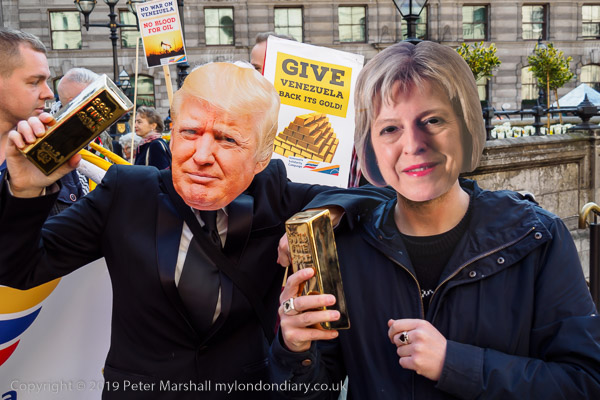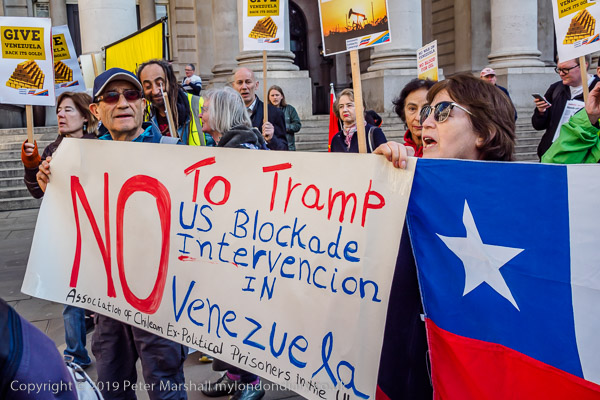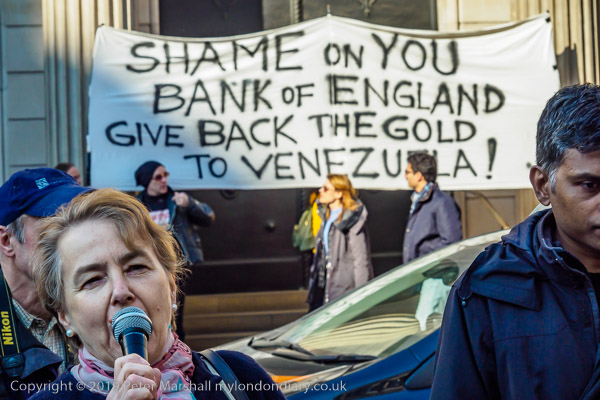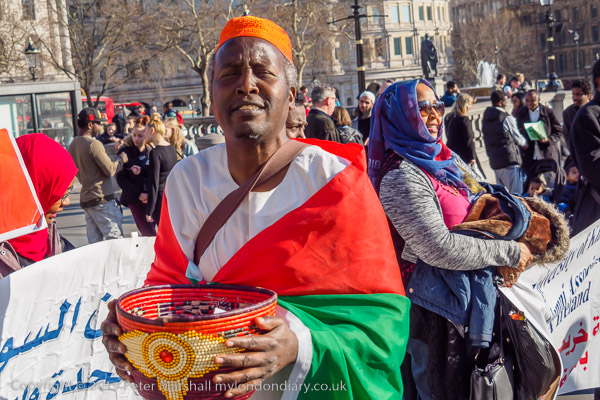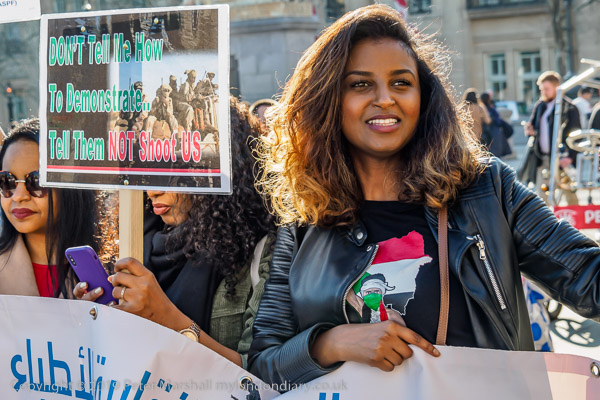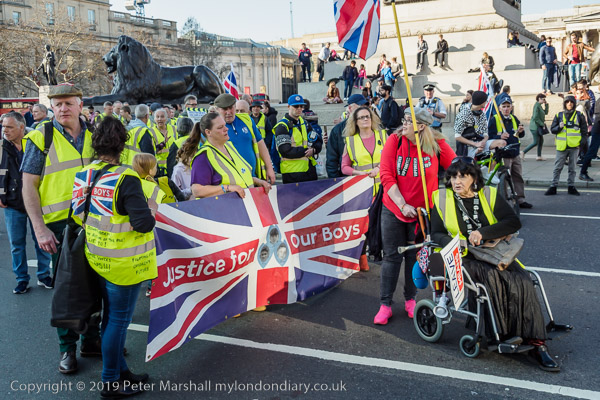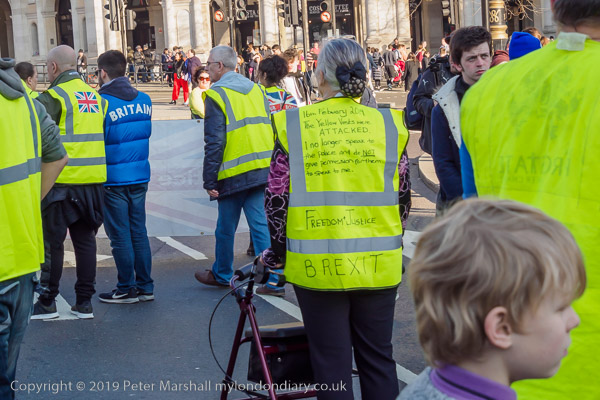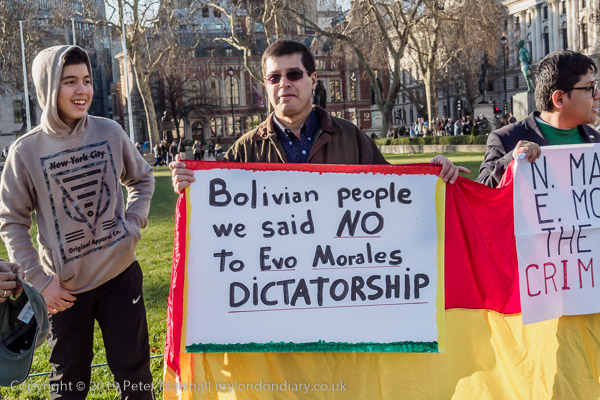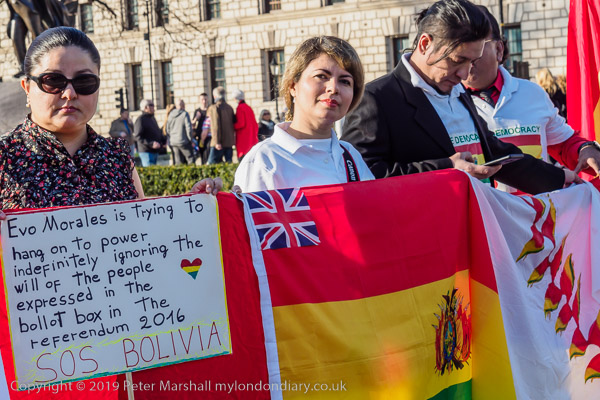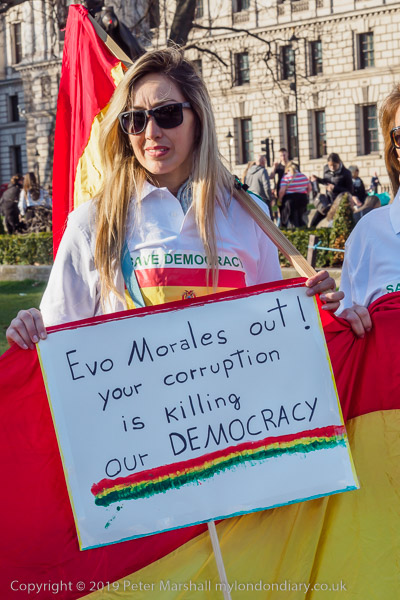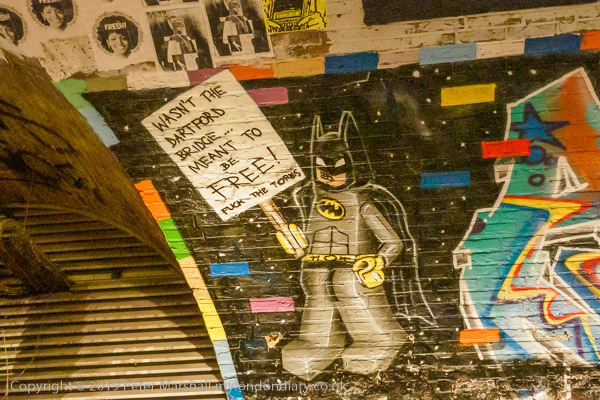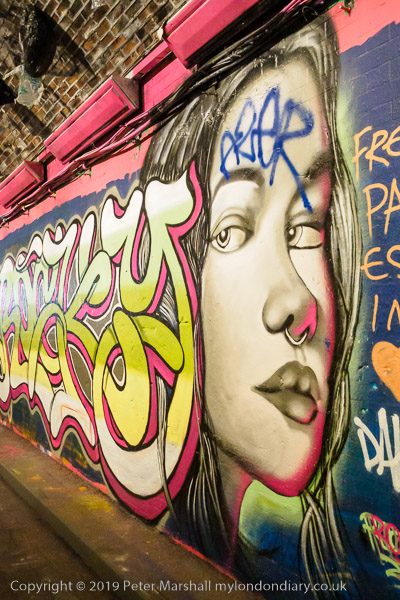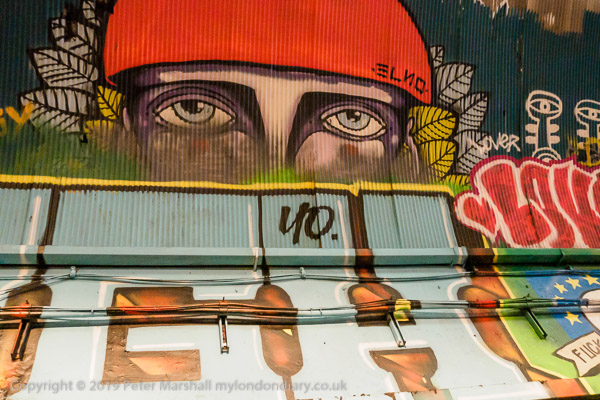Margaretta D’Arcy, Education & African Refugees: On Wednesday 22nd January I photographed a protest at the Irish Embassy demanding the release of anti-war activist Margaretta D’Arcy before going to a peaceful march by London Universitry students for democratic, public education free from exploitation and police violence. Finally I went to a protest close to the Israeli Embassy in Kensington in solidarity with African asylum seekers in Israel who are protesting their against arbitrary arrests, imprisonment and inhumane treatment.
Release Margaretta D’Arcy Now!
Irish Embassy
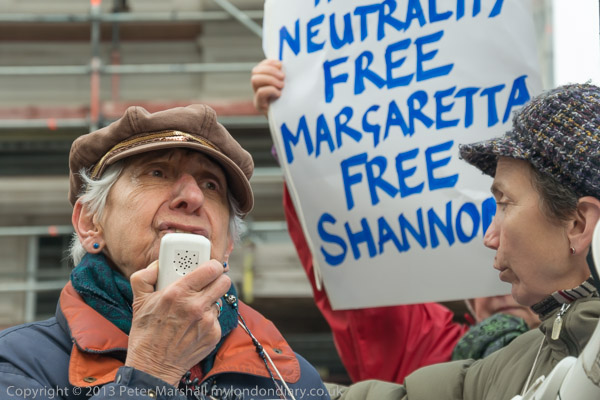
Margaretta D’Arcy (1934 – 2025) was an prominent Irish actress, writer, playwright and anti-war activist and a veteran of the Women’s Peace Camp at the US airbase on Greenham Common, where she had been a powerful member of the group at the ‘Yellow Gate’; protests by the Peace Camp eventually led to a legal challenge and the closure of the US Base with its cruise missiles.
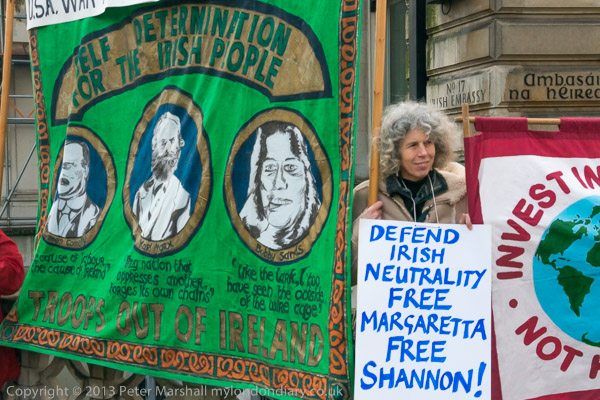
Earlier in 1961 D’Arcy had joined the anti-nuclear Committee of 100 and in 1981 had been imprisoned for the first time after defacing a display at the Ulster Museum. Active in many campaigns in Ireland including the Shell to Sea campaign against the Corrib gas project and the Ireland Palestine Solidarity Campaign, she was arrested in October 2012 for lying down on the runway at Shannon in a peaceful direct action by members of Galway Alliance Against War against the use since 2001 of Shannon by Galway Alliance Against War in violation of Irish neutrality.
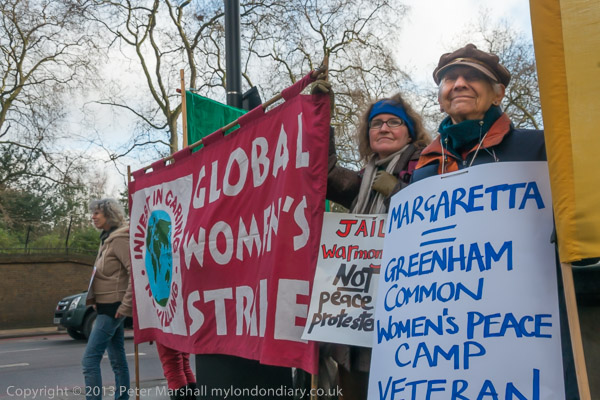
D’Arcy received a suspended sentence but after she had been arrested again on the runway at Shannon in September 2013 and she refused to sign a bond to keep out of restricted areas at Shannon the suspended 12-week sentence was reactivated. After serving nine and a half weeks of this she was released from Dublin prison in March 2014. She continued her activism until a few days before her death in 2025.
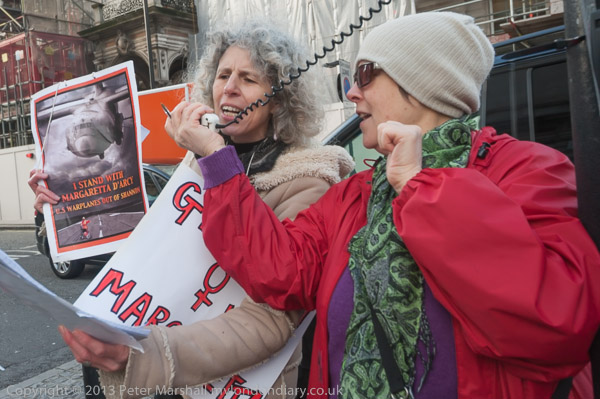
The protest at the Irish Embassy in London took place a week after D’Arcy was arrested to serve her suspended sentence, and around 50 people had come with banners and posters for a protest outside the Irish Embassy in London and to deliver a petition calling for her immediate release.
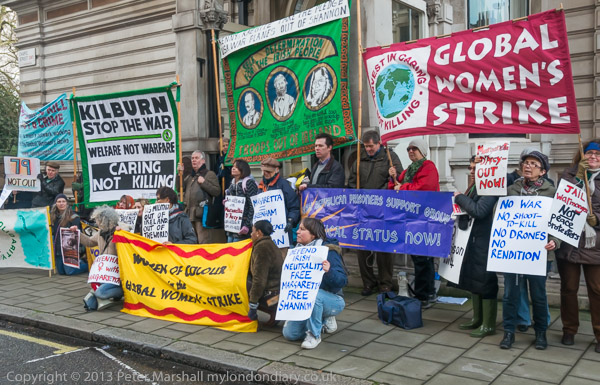
On My London Diary I list some of the many groups who supported the protest and most of those who spoke.
Release Margaretta D’Arcy Now!
Students March to Protect Education
London University & Holborn
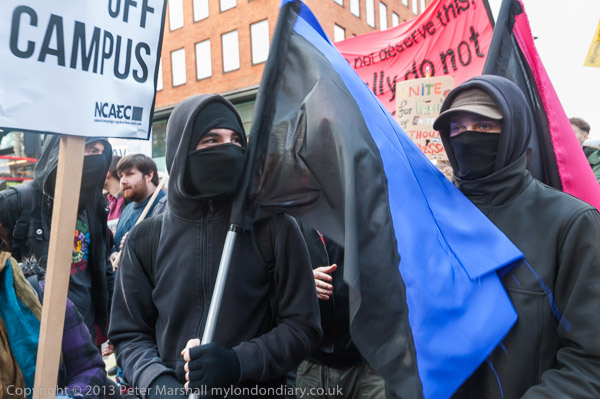
The protest by London University students took place following a number of incidents in London and elsewhere the previous term when university management had called police onto the campus or gone to the courts to prevent or oppose student protests or to harass students. This had led in December 2013 to a Cops Off Campus National Student Protest.
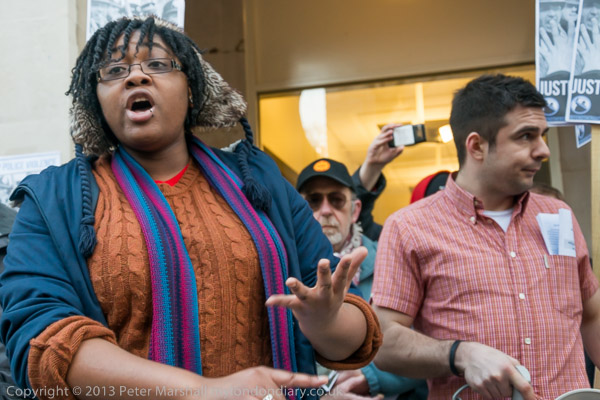
The protest began outside the University of London Union which the university is closing down with a speech by ULU President Michael Chessum and also by representatives of the lecturers who were taking action that week and the cleaners, maintenance and security staff who were about to hold a 3-day strike in their ‘3 Cosas’ campaign for sick pay, holidays and pensions, as well as for recognition for their union, the ndependent Workers’ Union of Great Britain (IWGB). Another student spoke about police violence, in particular against the black community.
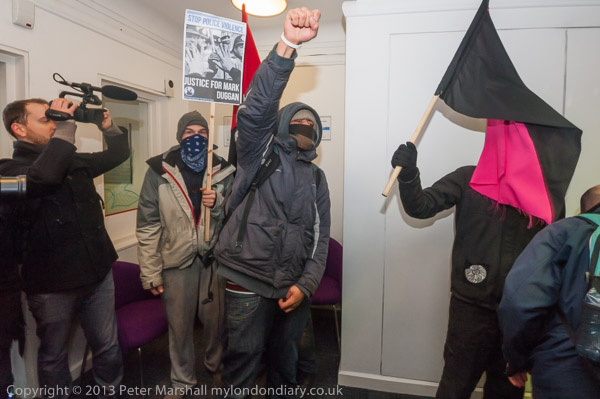
The marchers then went on a tour of key university sites including Senate House and the University & Colleges Employers Association in Tavistock Square where there was a brief token occupation of the lobby before going on to protest outside Holborn Police Station. Here as well as protesting against police violence they also protested the police execution of Mark Duggan.
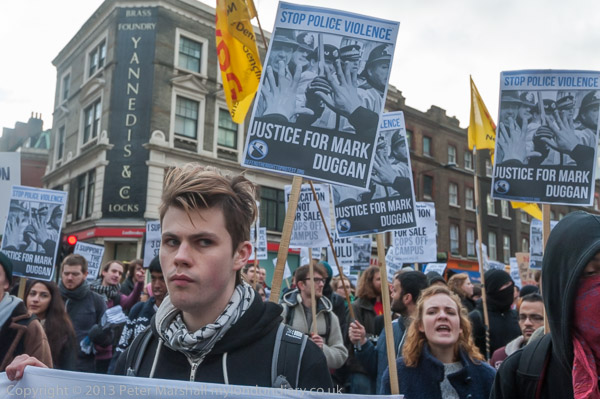
They continued down Kingsway to Aldwych and the Strand, ending the march with a short rally outside the Royal Courts of Justice. The police had kept at a discreet distance while the students were in the university area but both the police station and the law courts were guarded by a line of police.
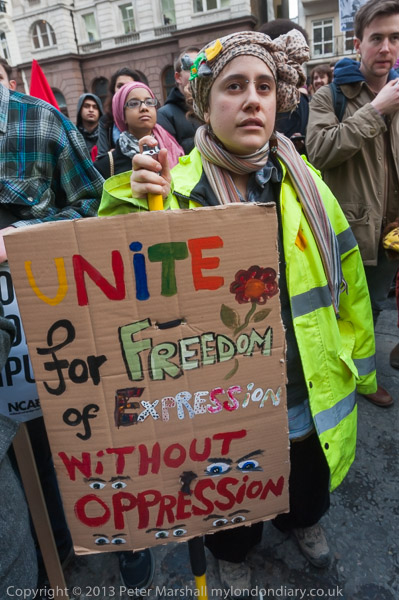
At the end of the rally Alfie Meadows suggested people might like to go on to a protest at the Royal Opera House, where the cleaners are also going on strike the next month for a living wage and proper conditions of work. About half the students then marched off with him, but I needed to leave for another event.
Students march to protect Education
Solidarity with African Refugees in Israel
Israeli Embassy, Kensington
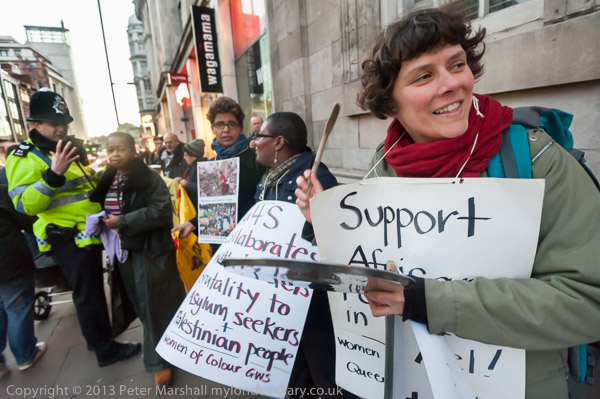
Tens of thousands of African asylum seekers had been protesting in Israel since the start of the year holding mass rallies against their treatment by the Israeli authorities.

In December new laws in Israel had meant entering the country without proper papers could be held for up to a year without trial, and those already in the country could be held in indefinite detention. The detention facility in the Negev desert, like many other Israeli prisons, is run by the private security company G4S.
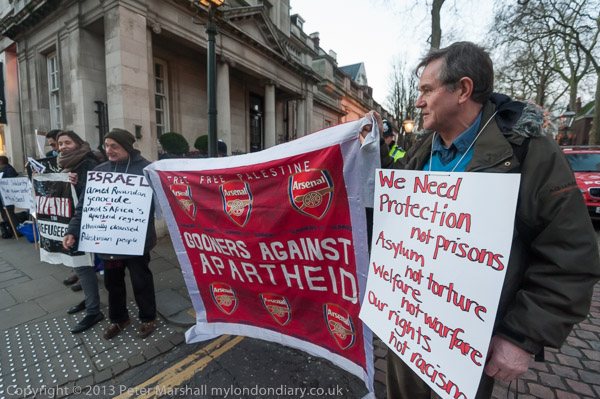
There were around 50,000 refugees currently living in Israel, most who had fled brutal conflicts in Sudan and Eritrea, with only a few hundred of their applications had been processed. Most keep alive by working illegally, exploited and in fear of arrest.
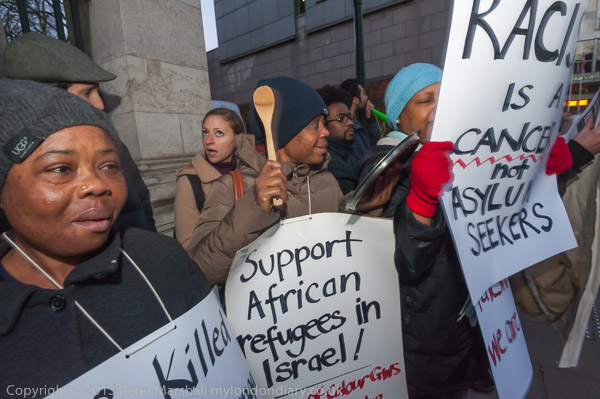
Recently a strike by those working as cleaners, cooks, dishwashers and other low paid workers had brought many restaurants, hotels and businesses to a standstill. They held a rally with over 20,000 in Rabin Square in the centre of Tel Aviv with banners saying ‘We are refugees, not criminals’ and demanding their rights.
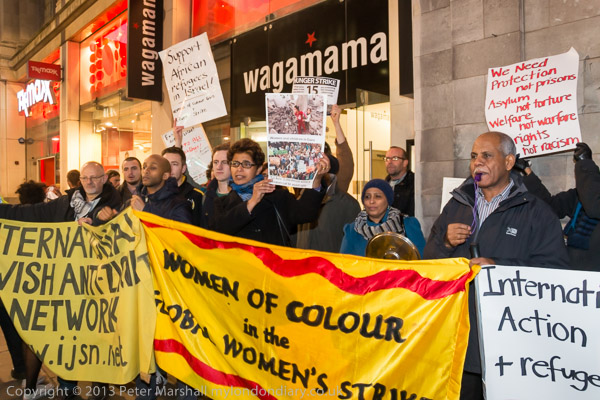
The London protest was one of many around the world following a call by the African Asylum Seekers Community in Israel for international solidarity. It isn’t possible to protest outside the Israeli Embassy in London which is down a well-guarded private street, but the protesters gathered on the pavement in front of the entrance to this street, refusing police attempts to move them further away.
More pictures at Solidarity with African Refugees in Israel
Flickr – Facebook – My London Diary – Hull Photos – Lea Valley – Paris
London’s Industrial Heritage – London Photos
All photographs on this page are copyright © Peter Marshall.
Contact me to buy prints or licence to reproduce.
